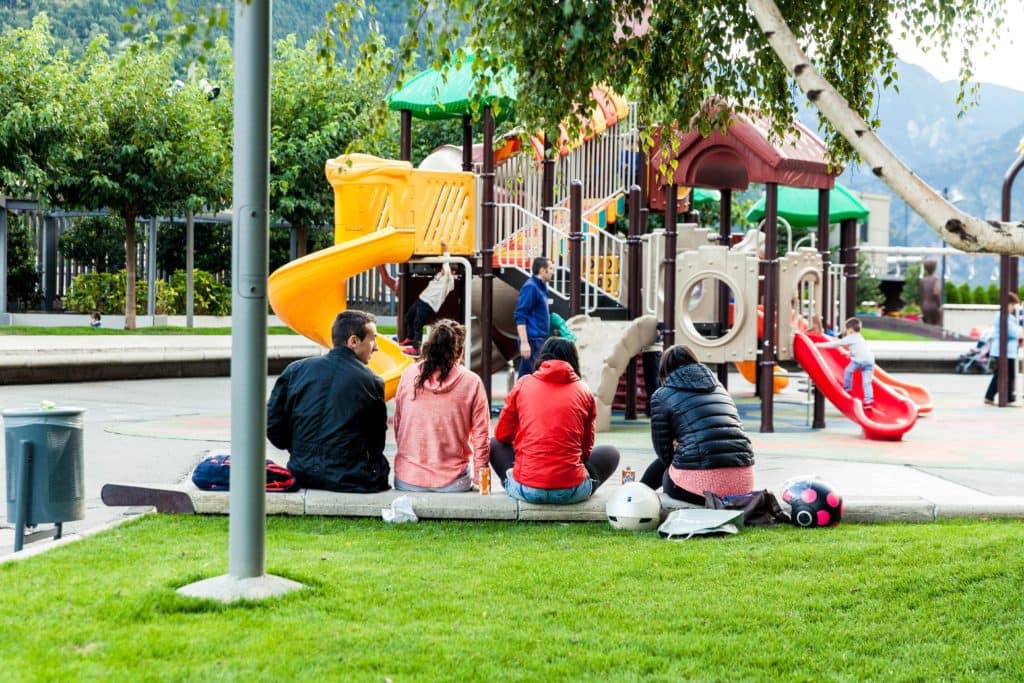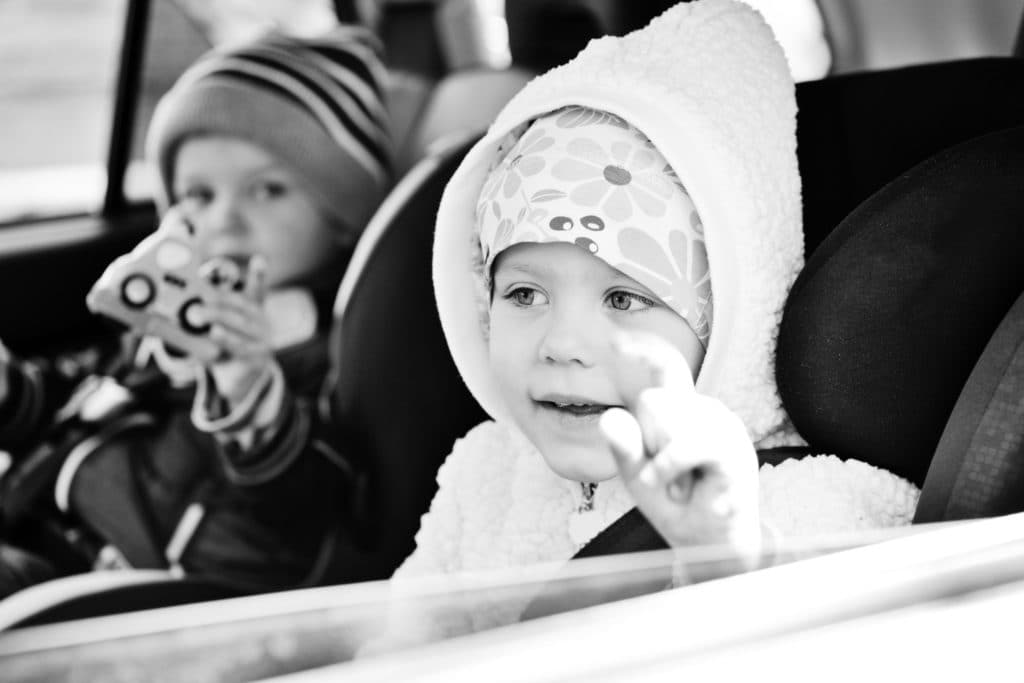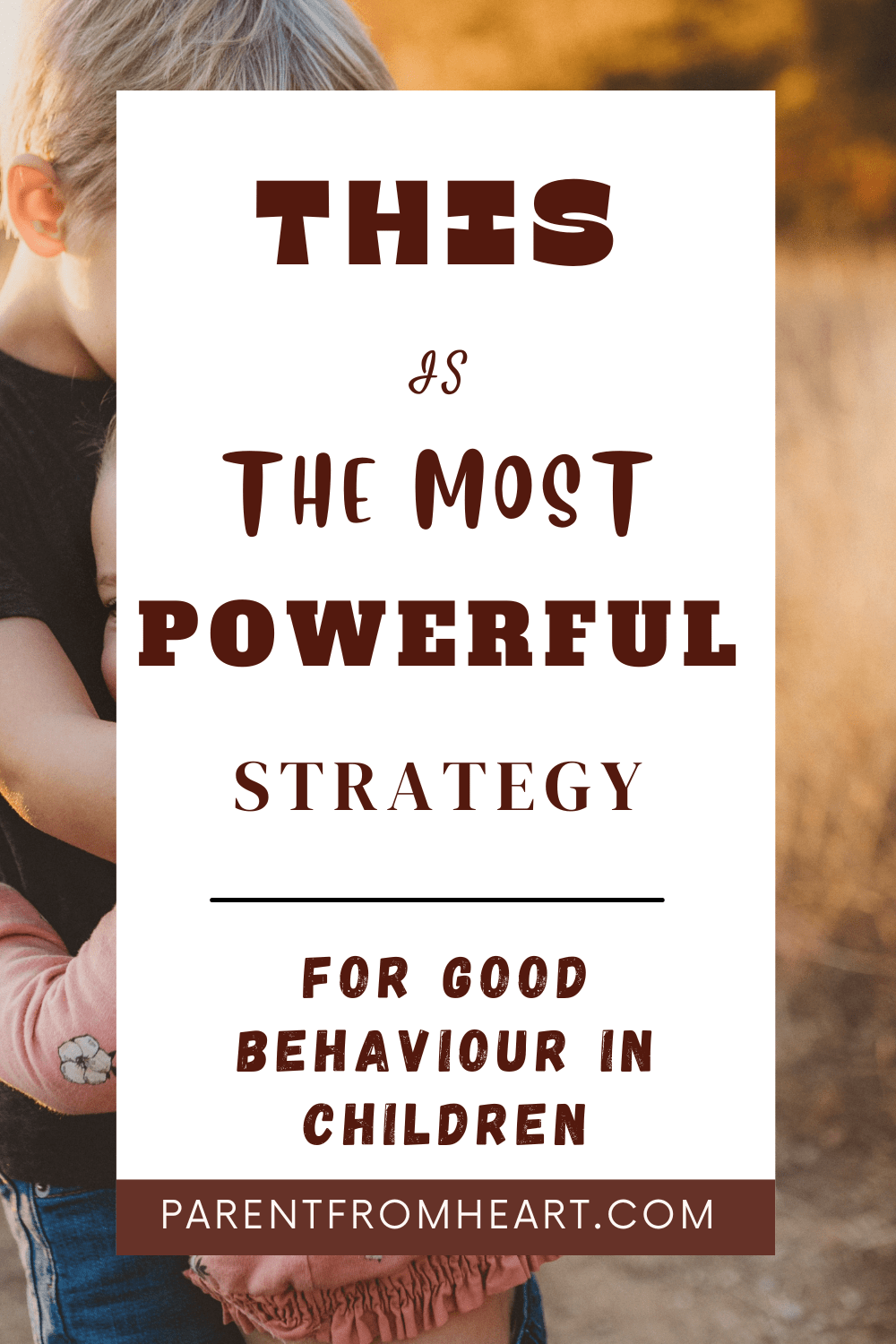Your child’s behaviour is especially difficult and you’ve tried to coach them, but nothing is working. Your child…
Your child’s behaviour is especially difficult and you’ve tried to coach them, but nothing is working. Your child won’t listen despite using every parenting strategy you can think of. This positive discipline technique is the foundation for everything. Find out why this particular positive parenting strategy works so well.

It wasn’t going to be a long road trip and I had prepared so well.
Before we left, I took my kids to the playground near the hotel.
I urged them to run a lot.
By the time we hit the van, they had played, climbed, and of course, ran. I had them fed and they’d gone to the bathroom too.
It started with screaming.
“I. WANT. TO. BE. HOME.”
Each word was punctuated and shrill.
I had tried to reason with her. “We will be home shortly. Just close your eyes and the trip will be over faster.”
When that didn’t work, I tried empathy. “You’re frustrated. I know. Waiting takes a lot of patience.”
Related reading: Why You Shouldn’t Punish Tantrums and What You Can Do Instead
The more I ignored her, the more she pushed back.
I breathed deeply and tried to imagine yoga class.
“Inhale – let, exhale go,” I said to myself.
She flung one shoe. Then the other.
I no sooner spun my head around than I saw her hitting my brother. With that, I pulled to the side of the road and took her out of the car.
I wanted to shake some sense into her. In fact, it took everything in me not to shake sense in her I was that mad.
As I waited for her cooperation, I held her hands and choked back my frustration as best I could. After what felt like an eternity, she was ready to go back to the car.
Related reading: Stop Yelling at Your Kids Using One Simple Strategy
My mom offered to take my place in the driver’s seat and I made my way to the back of the van.
Disclaimer: This post contains affiliate links. The price you pay is the same. However, I receive a small commission.

Wedged between two booster seats, I sat with my jaw clenched.
I forced a smile. My almost-four-year-old cracked a potty joke.
The tension in my daughter’s face released as she giggled. That’s when I decided to join in too. I leaned over and whispered a joke in my daughter’s ear, then my son’s.
Quickly, it turned into an ongoing rotation of potty humour jokes and laughter from all of us. In no time, it was as though my daughter’s challenging behaviour had never happened.
The last hour and a half of our drive went off without a hitch.
I’ve tried distraction techniques and other forms of positive discipline before, but this was different. Something compelled my daughter to behave and it wasn’t a simple slight of hand.
Connection. It was connecting with my daughter that changed everything that day. It was a combination of me being present with her and being playful that motivated my daughter to cooperate.
Related reading: The Best Way to Improve Your Child’s Most Difficult Behaviour
When I reflected back on the day, I realized I had barely paid any attention to my oldest child. First, I filled the suitcases with wet bathing suits and well-worn clothes. Then, I brought the kids to a park and shooed them away from me so they could burn off steam. And when we got into the van, I told her I couldn’t hear her because she was in the back row.
Even though I thought I had done everything right, she felt disconnected from me.
According to family therapist, Susan Stiffelman children are hardwired to behave better when they feel connected to us. Their attachment to us fuels their cooperation.
From an evolutionary psychological perspective, it makes perfect sense. If a stranger asks a child to come with him, the child won’t want to.
If you think back to your own childhood, you likely gave a substitute teacher or two a run for their money when they entered into your class. The truth is, kids will comply less when they don’t have a relationship with the adult in charge.
In truth, as adults, we operate similarly.
Stiffelman explains that, when someone we don’t like makes a request of us, we are likely to decline. For example, if our loud, annoying neighbour asks us to bring in his garbage cans while he is away, we’ll likely say no. However, if our very best friend asks us to drive one hour each way to do something for her, we are more likely to say yes.
When a child doesn’t feel connected to the person in charge, discipline becomes more challenging. The adult in charge may default to treats and bribes to get better behaviour. However, research shows that these methods work only in the short term at best. When these methods are used over time children are more likely to be rebellious or only comply in the presence of the threat.
Related reading: The best and worst consequences for moral development
Connection to fuel cooperation can take on many forms. Obviously, when a parent is driving she doesn’t typically have the option to climb to the back and have someone else drive. Here are some other basic scenarios to connect with your child to improve listening and behaviour.
The drive back that day started off terribly. But when I was able to pull over the van and sit between my two kids, the ride was easy. When we connect with our kids and then make requests of them, they are more motivated to cooperate.
Like this post? Click on the image below to pin it for later!

Ask any parent who has watched a two‑year‑old “fail” to hear the call to put on shoes—only to…
Toddlers can be confusing, to say the least. One moment they’re clinging to your leg like a baby…
Affection wasn’t really a thing in my childhood home. My parents were good providers, but hugs, “I love…